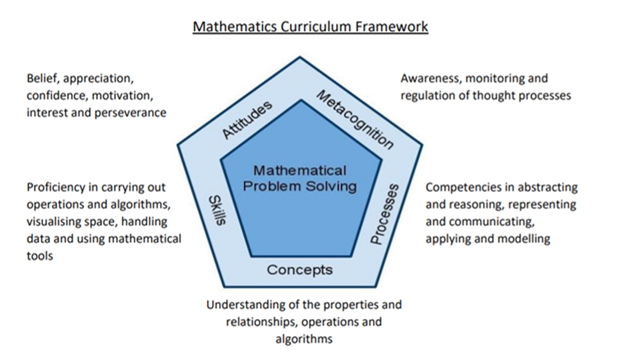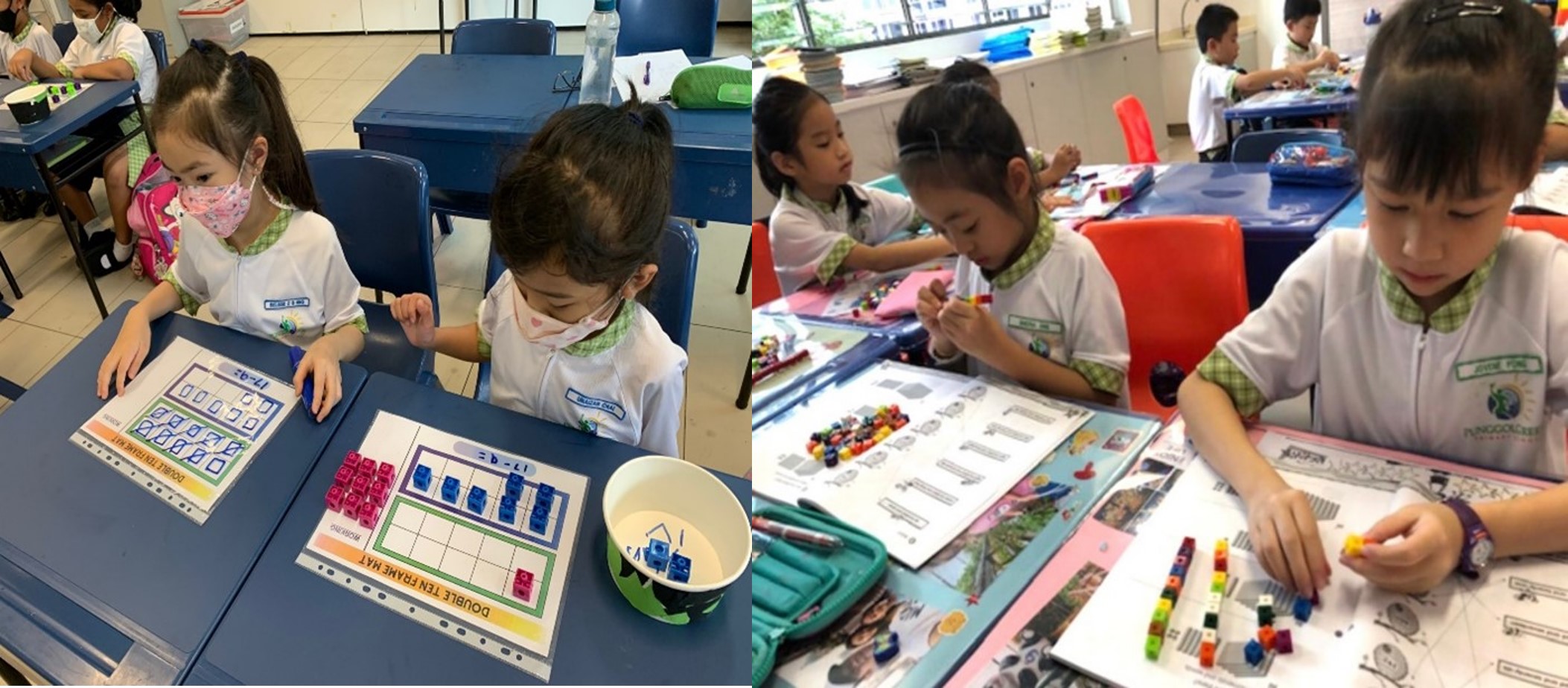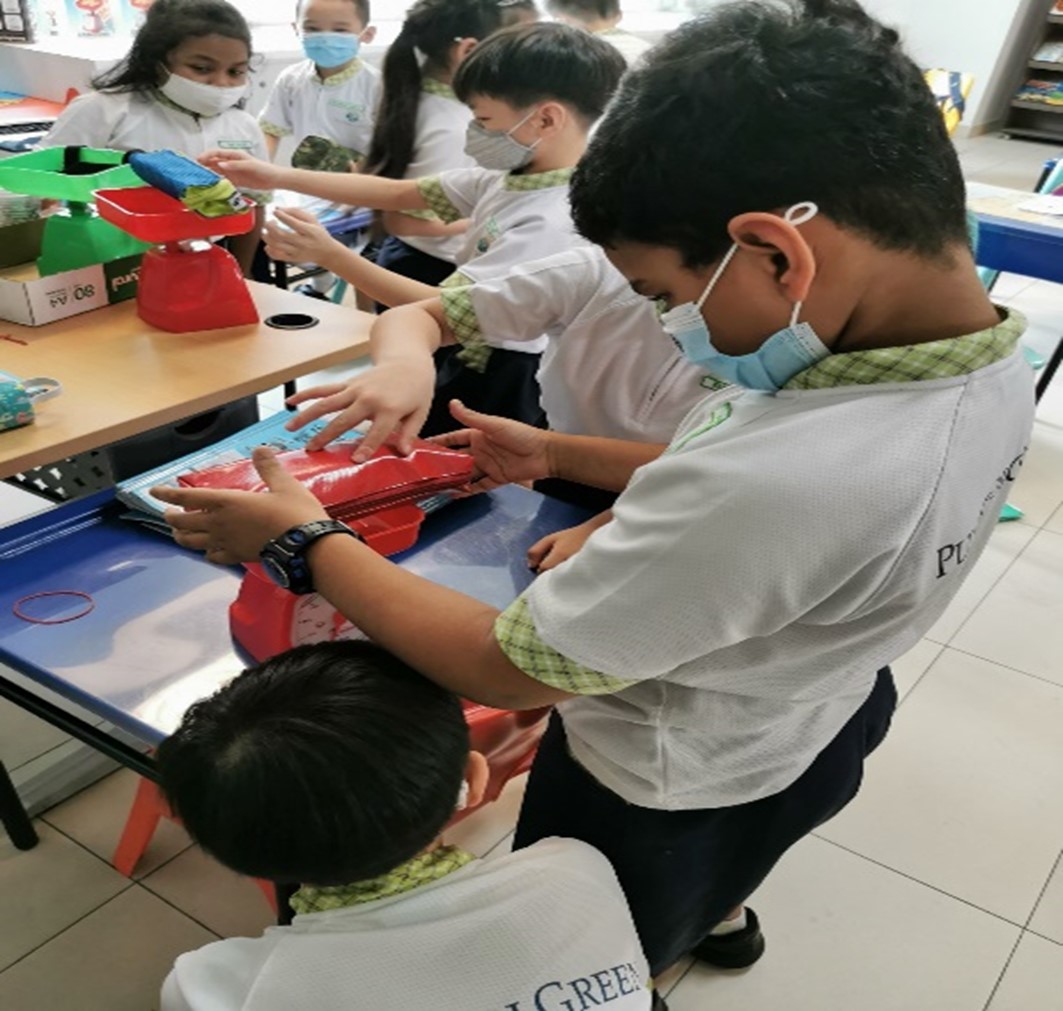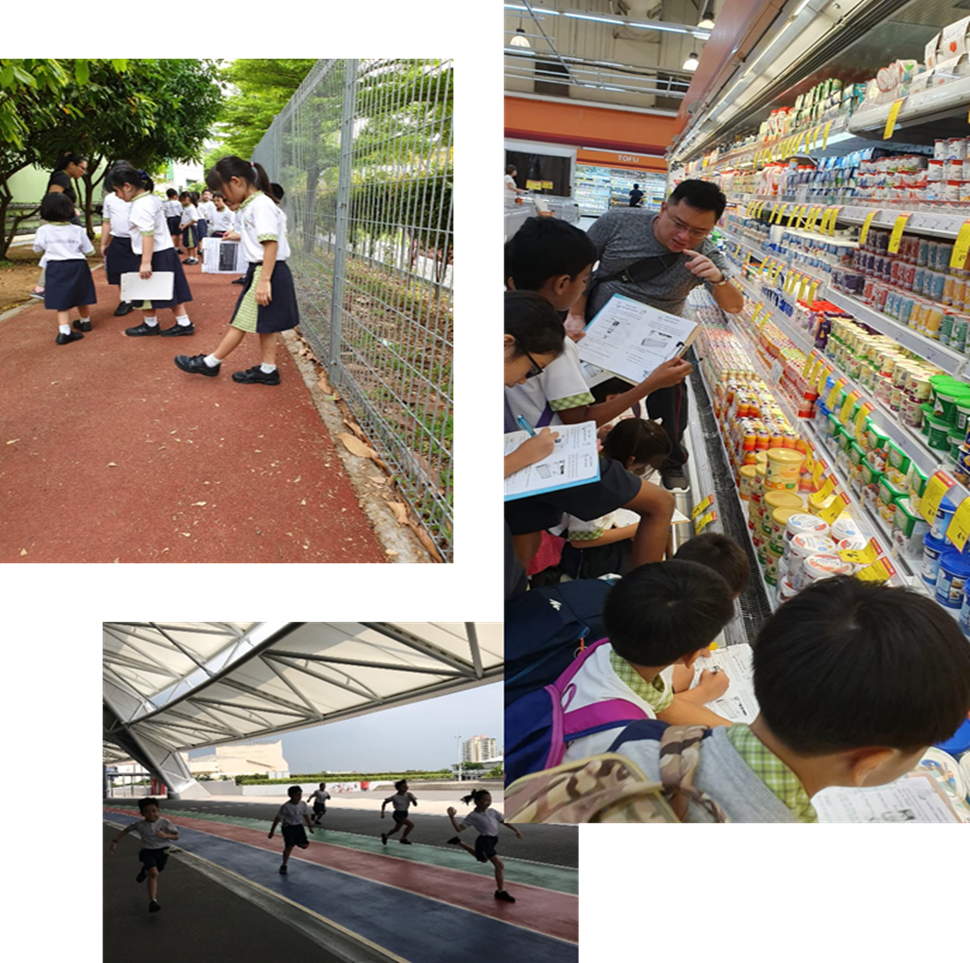Mathematics
Department Mission:
To inculcate in students positive attitudes and the joy of learning Mathematics with the necessary skills and knowledge to be ready for the future.
The Mathematics Framework

Singapore Mathematics Curriculum Framework guides the design of Math curriculum in our school. The central focus of this framework is the development of mathematical problem-solving competency. The framework sets the direction for the teaching, learning and assessment of Mathematics at all level in our school. The framework stresses upon 5 components which are closely inter-related – attitudes, skills, concepts, processes and metacognition. In a nutshell, this framework emphasizes the importance of conceptual understanding (rather than rote learning); the development of various Mathematical skills and processes; metacognition (which essentially is thinking about one’s thinking), as well as fostering positive attitudes such as confidence and perseverance in our learners.
There are 3 main aims that our national curriculum seeks to achieve.
First, it aims to enable all students to acquire mathematical concepts and skills through everyday use and continuous learning in Math. Next, it aims to develop various skills such as thinking, reasoning, communication and metacognitive skills through a mathematical approach to problem solving. Lastly, it aims to build confidence and foster interest in Math.
Approach
Concrete – Pictorial – Abstract (CPA) Approach
The CPA Approach provides a sound pedagogical model in the development of concepts and skills. Under the CPA approach, students develop mathematical concepts and skills progressively from the concrete and pictorial levels to the abstract level. Learning will be made meaningful and fun through careful selection of contexts and age-appropriate activities.

Learning Support for Math (LSM)
Learning Support for Mathematics (LSM) is an early intervention effort aimed at providing additional support to students who do not have foundational numeracy skills and knowledge to access the Primary 1 Math curriculum. Students are identified for the intervention through a screening process carried out at the beginning of Primary 1. They are supported by a LSM Teacher for 8 periods a week. The programme is extended to students at P2, P3 and P4 who require the extra support.

Improving Confidence and Achievement in Numeracy (ICAN)
The main objective of the project is to raise the confidence and achievement of low progress learners. It is also aimed at building teachers’ capacity to support low progress learners. Teachers will implement ICAN strategies in class by:
- Fostering a positive class climate and building routines
- Understanding the learning needs and matching pedagogical strategies
- Using available resources to diagnose and intervene appropriately
Programmes
Project Booster
The aim of the project is to build confidence of low ability students in solving basic mathematical questions. Students are provided with small group coaching and targeted worksheets to experience success. Students are exposed to a variety of questions across the curriculum to further challenge them.
Math Around Us
Math rich activities that are authentic learning task designed to provide students with rich and diverse learning experiences. Key features of activities include a focus on inquiring learning and the application of mathematics knowledge to real-world contexts. Students to work collaboratively and responsibly with peers to complete the activities.

Excellence 2000 (E2K) Mathematics Programme
The E2K Mathematics Programme Singapore is a Mathematics enrichment programme developed by the Israel Centre for Excellence through Education (ICEE). The programme, which is rolled out for selected P4, P5 and P6 students, uses game-based learning to expand students’ horizons and reinforces their confidence in their ability to cope with scholastic changes.
Project Victory
The key objective of the programme is to stretch higher ability students via a curriculum that moves at a faster pace, goes deeper into important thought processes and covers a broader set of ideas than that in the textbook, level worksheets and problem-solving worksheets. Through case scenarios and dialogues, students are encouraged to think through and clarify their thoughts through examining self and others’ personal feelings. With the growing awareness and empathy, our students make decisions through identifying and evaluating choices based on their values and beliefs.

